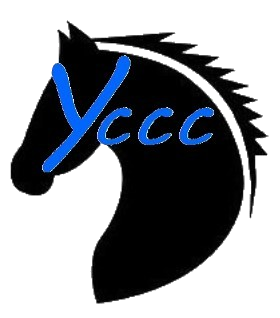
Congratulations to the participants of the
9th Youth Chess Composing Challenge!
THE RESULTS: Introduction and Participants
Award Section A | Award Section B & PGN: download / view | Award Section C

Congratulations to the participants of the
9th Youth Chess Composing Challenge!
THE RESULTS: Introduction and Participants
Award Section A | Award Section B & PGN: download / view | Award Section C

Upon a personal initiative of
HH Sheikh Mohammed bin Hamad Al Sharqi
Crown Prince of Fujairah
◈◈◈
The 2nd qualification tournament of the WFCC Fujairah Grand Prix 2025-26 has been concluded in Alba Iulia.
See the regulations of the Grand Prix, the current Standings, tournaments, money prizes on the official website of the Grand Prix.

The 48th World Chess Solving Championship takes place in Alba Iulia (Romania) 08-09 July 2025.
FINAL RESULTS:
09.07.25: The result is preliminary until tomorrow, 10.07.25, 9 am
Preliminary result of after the 6th Round: Individual | Teams | Detailed Teams | Norms&Titles
Preliminary result of after the 5th Round: Individual | Teams
Preliminary result of after the 4th Round: Individual | Teams
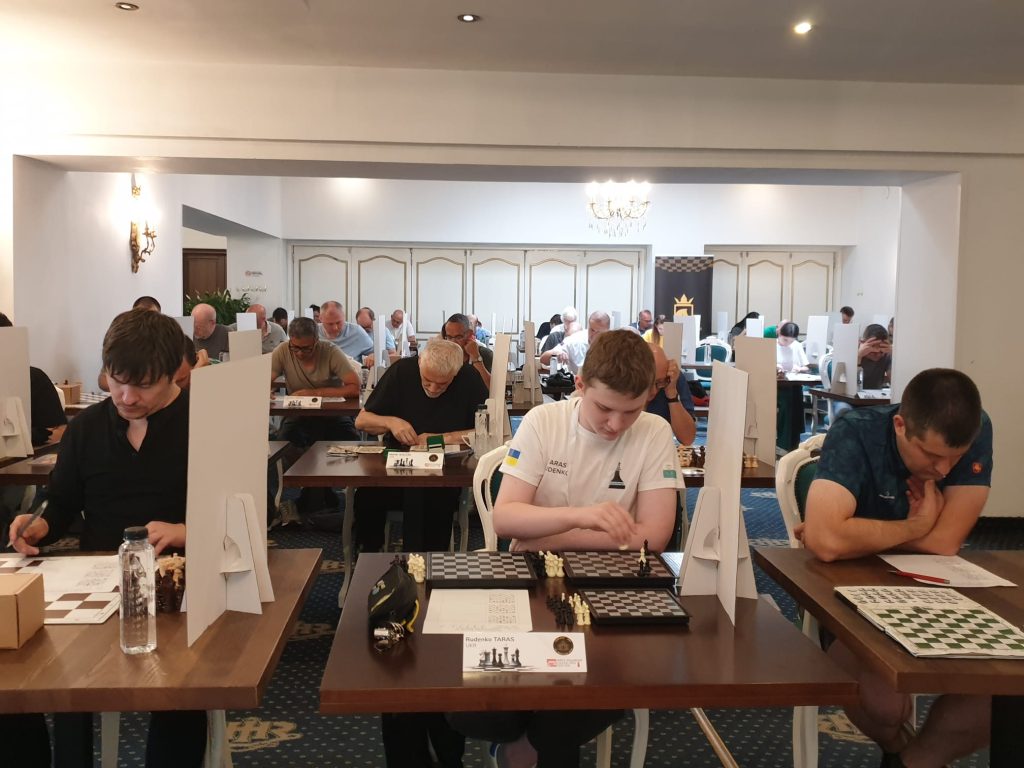
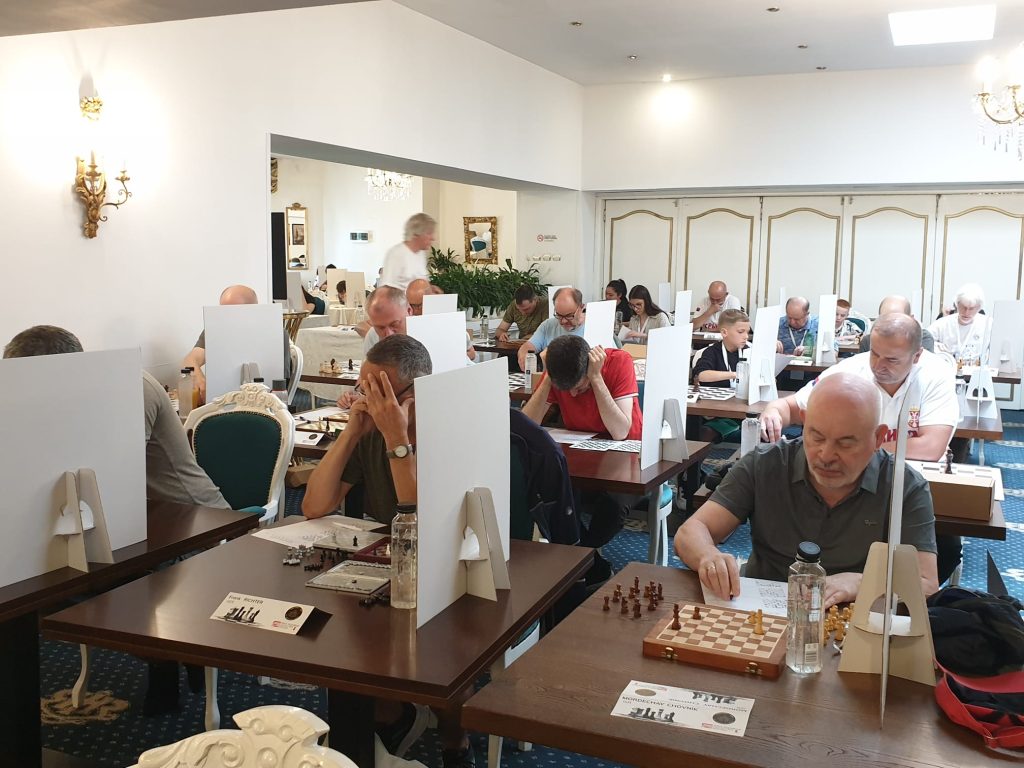
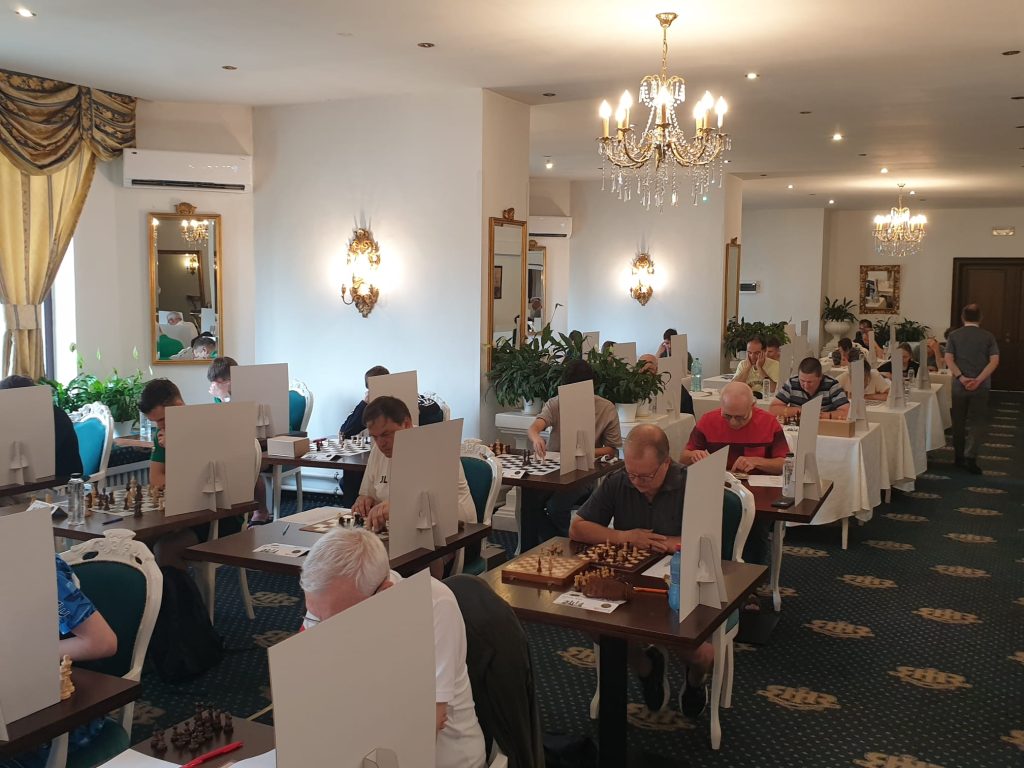
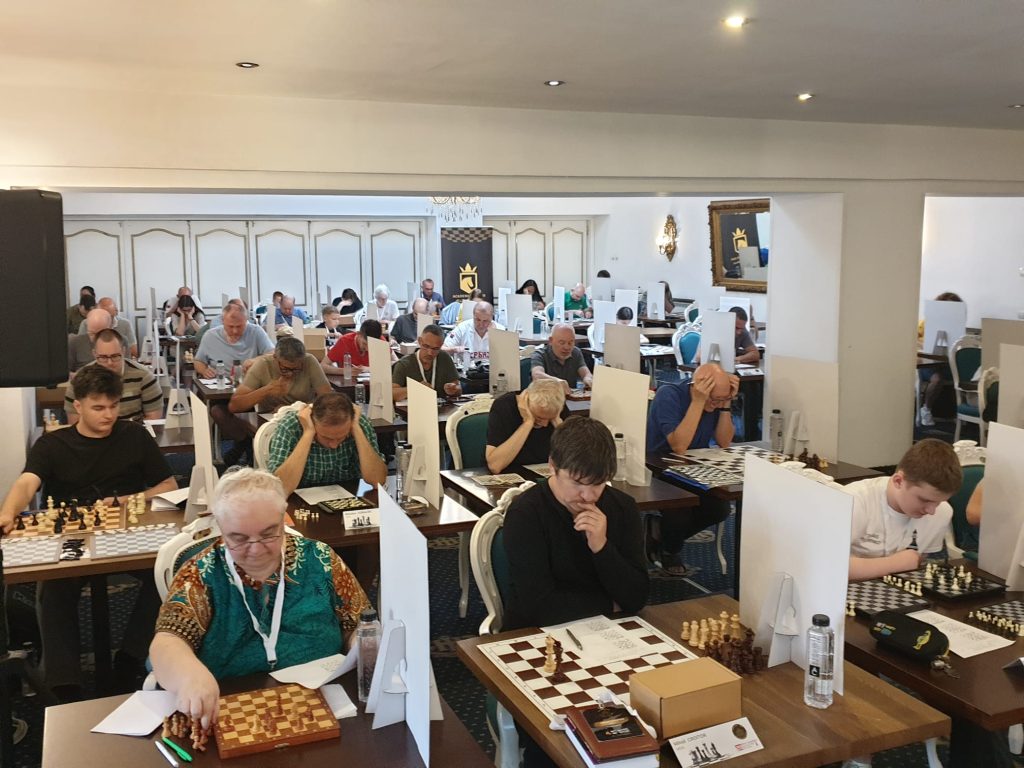
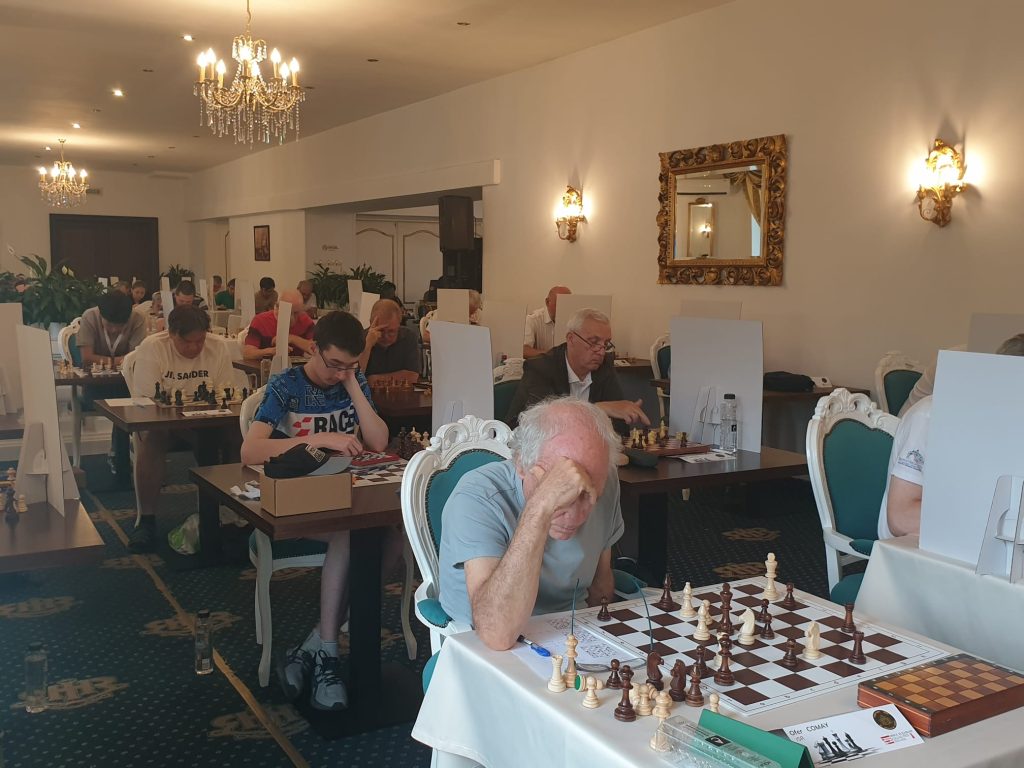
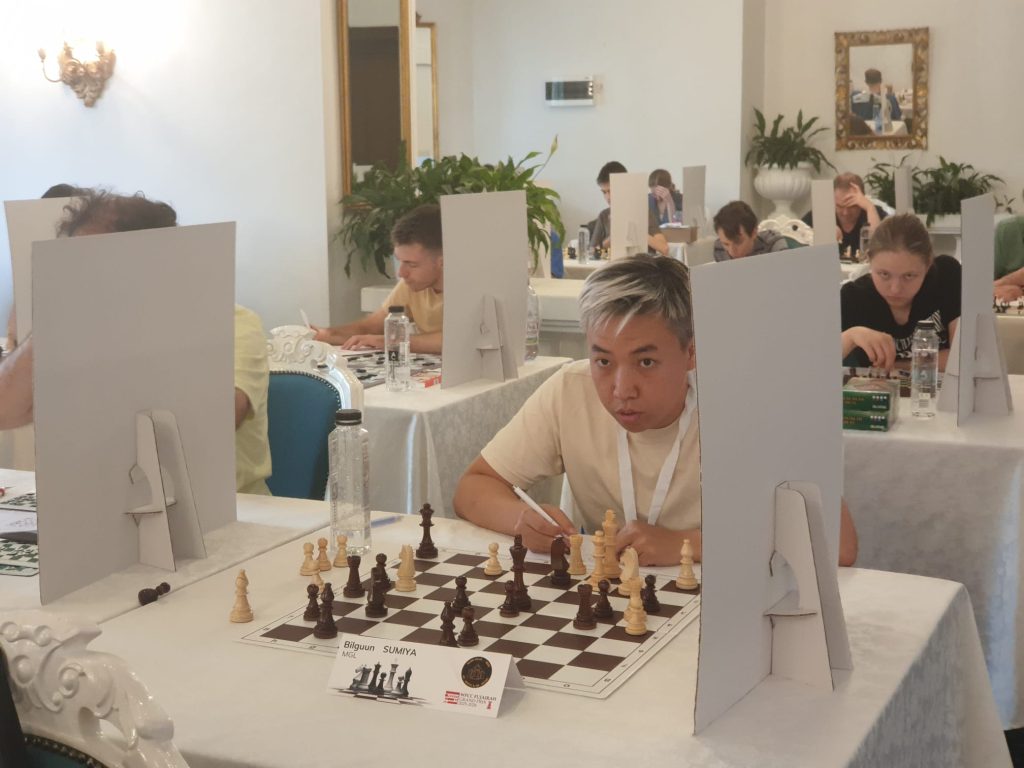
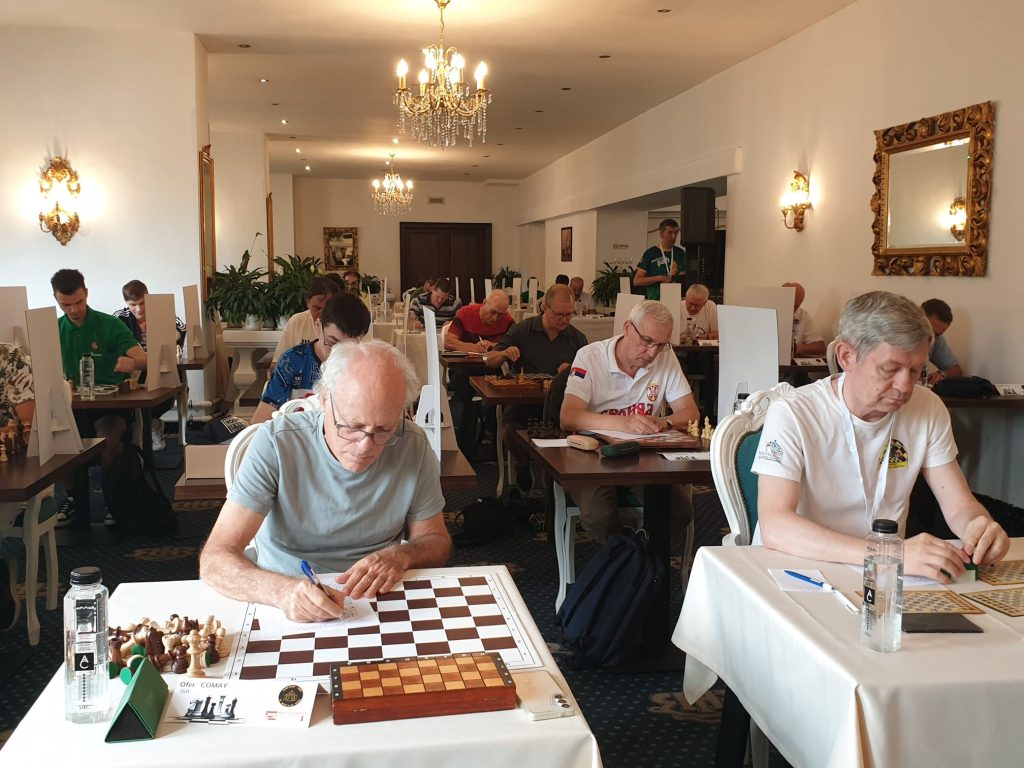
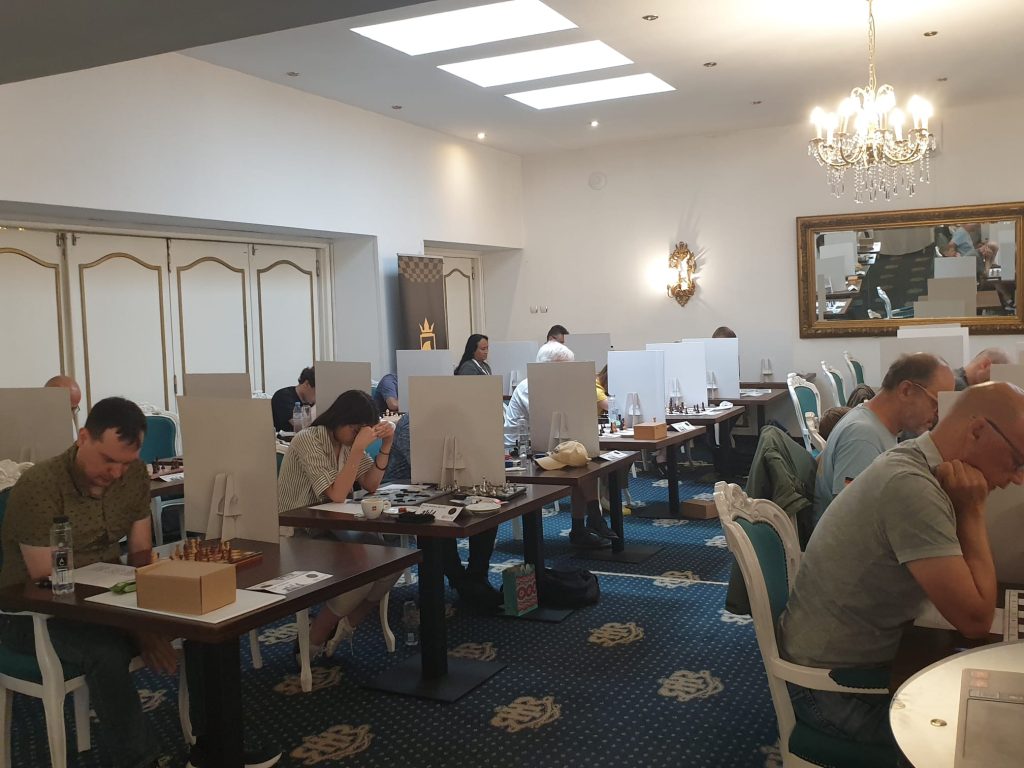
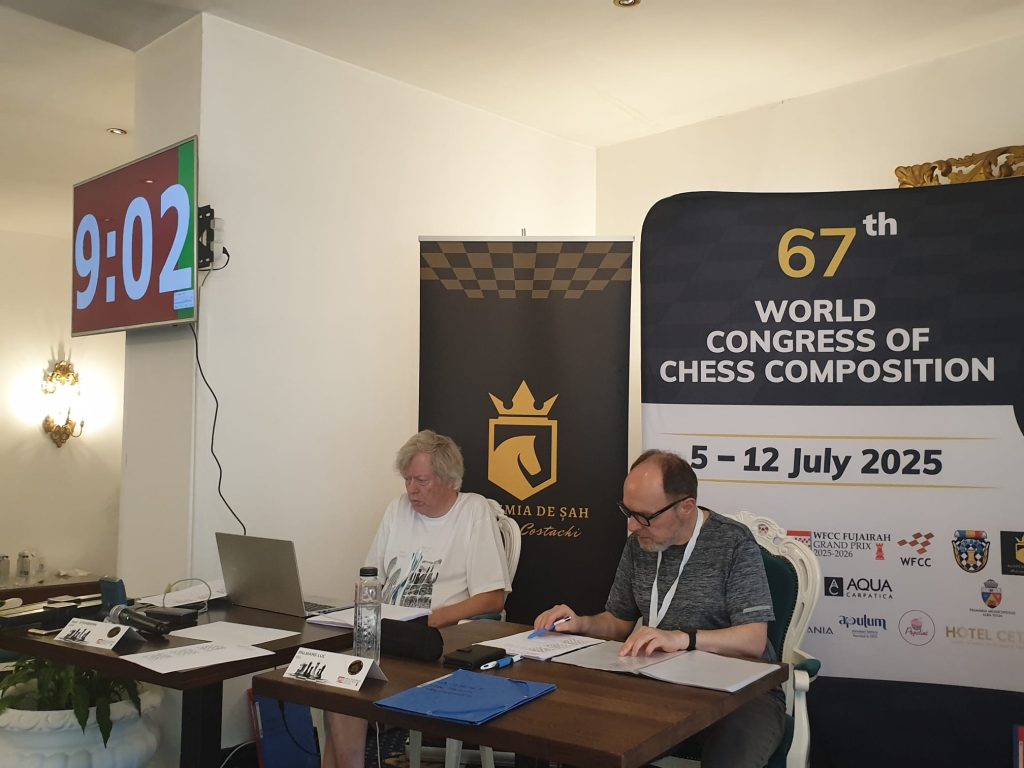
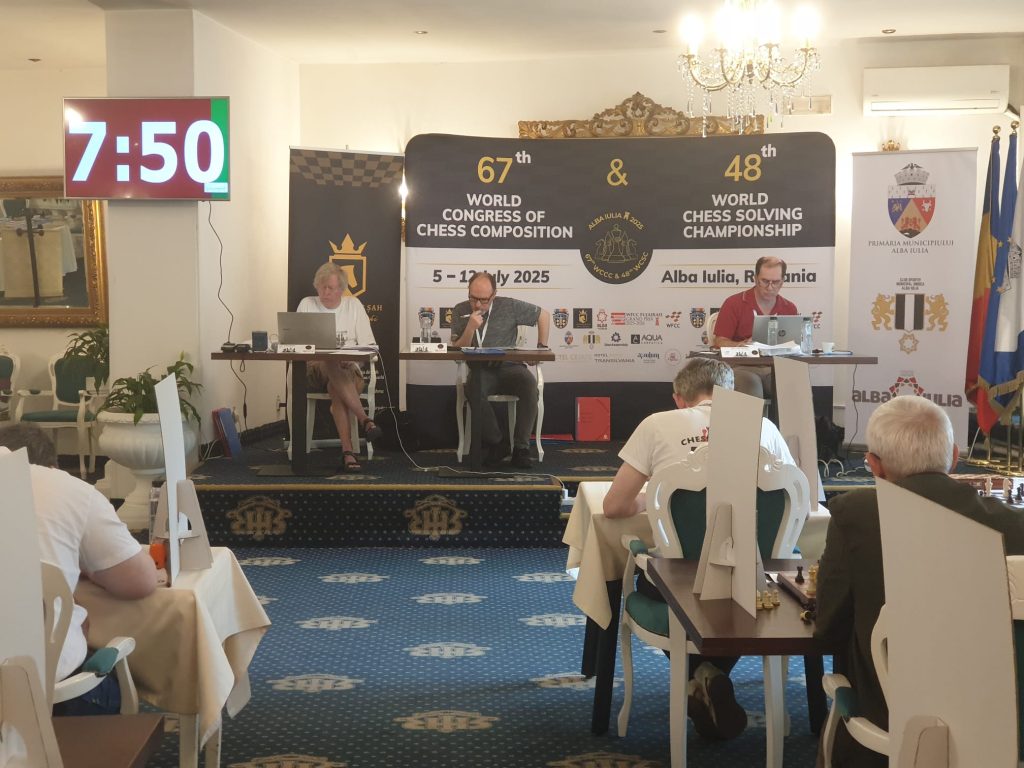
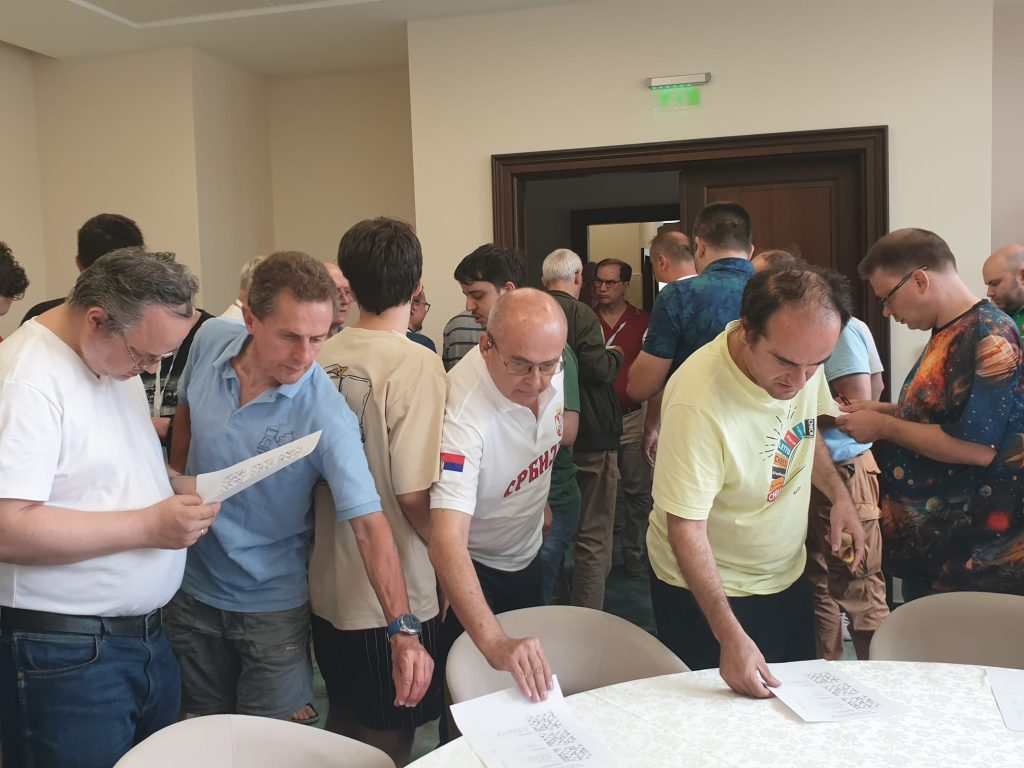
08.07.25:
Preliminary result of after the 3rd Round: Individual | Teams | Detailed Teams
Preliminary result of after the 2nd Round: Individual | Teams
Preliminary result of after the 1st Round: Individual | Teams
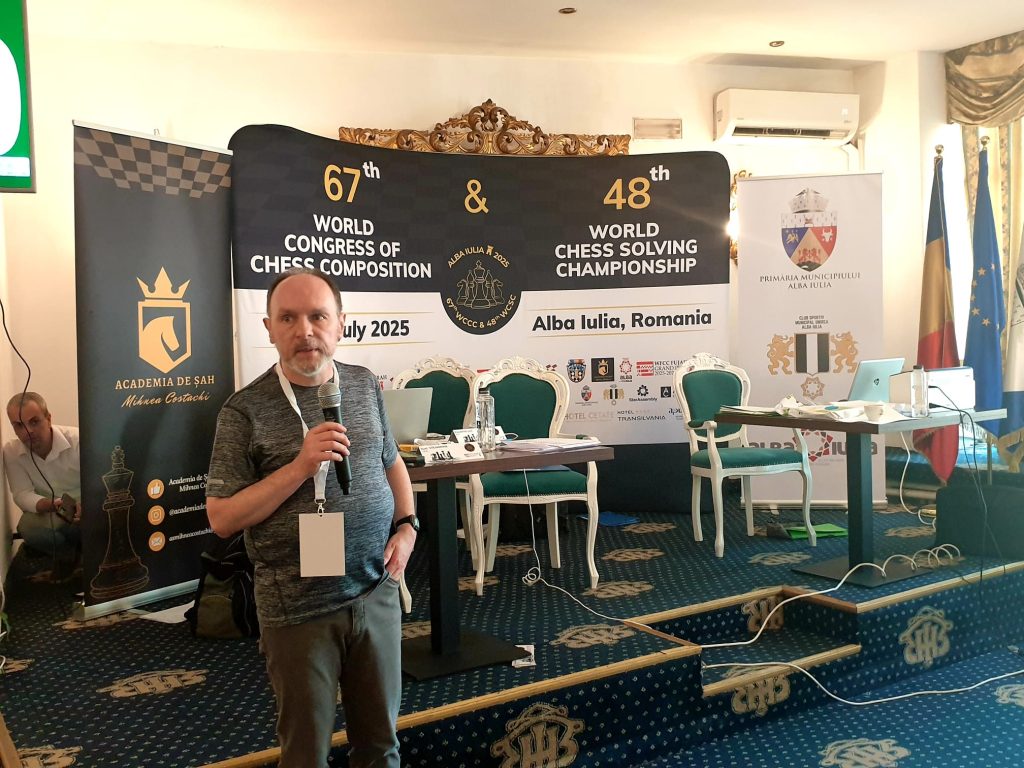
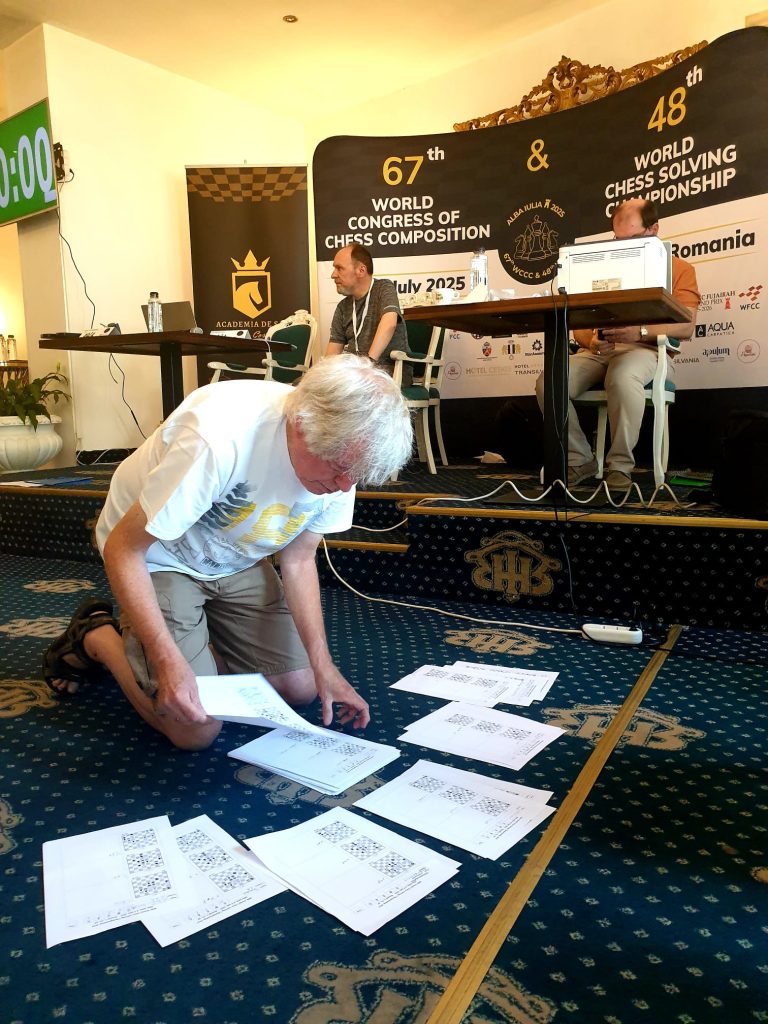
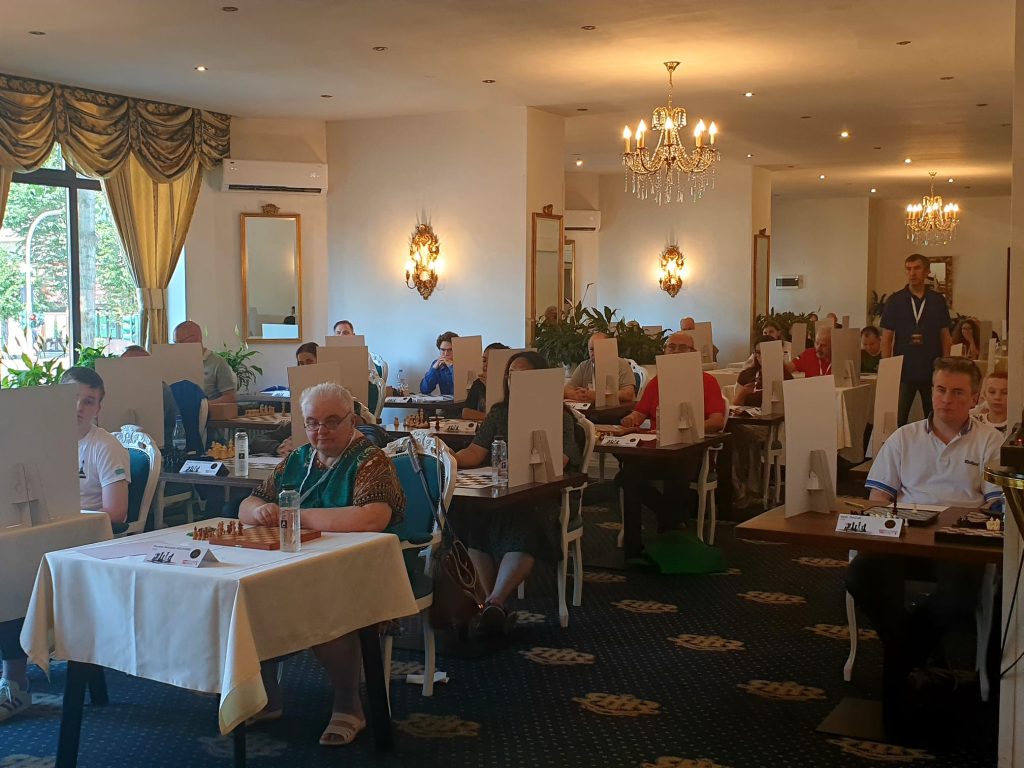
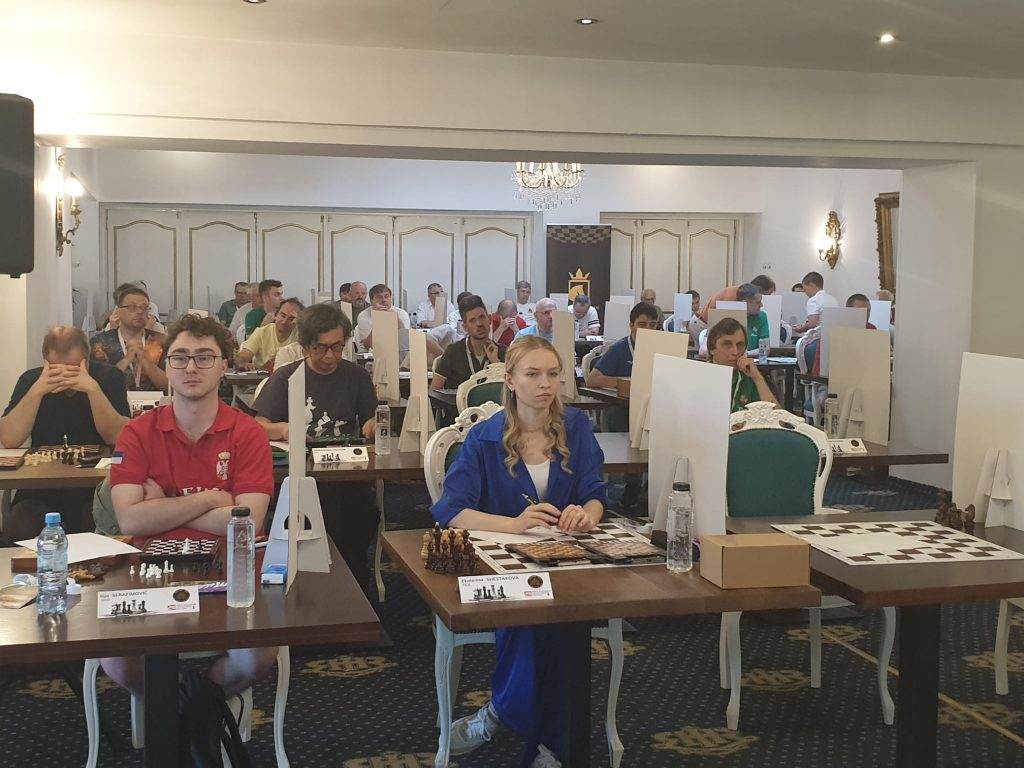
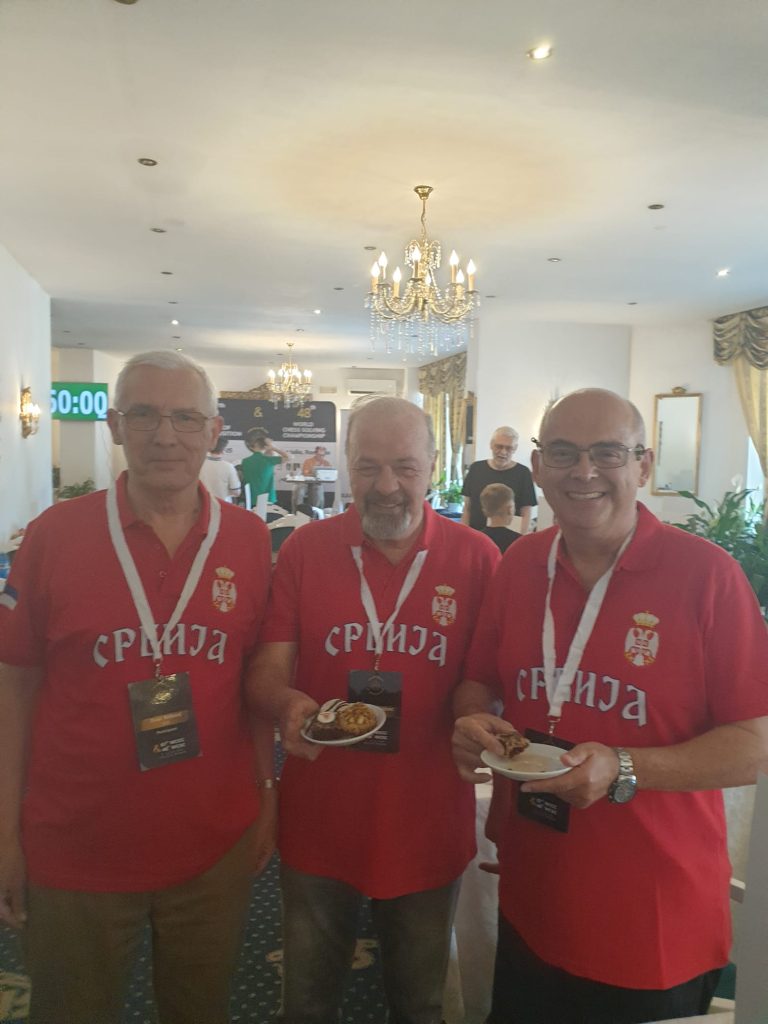
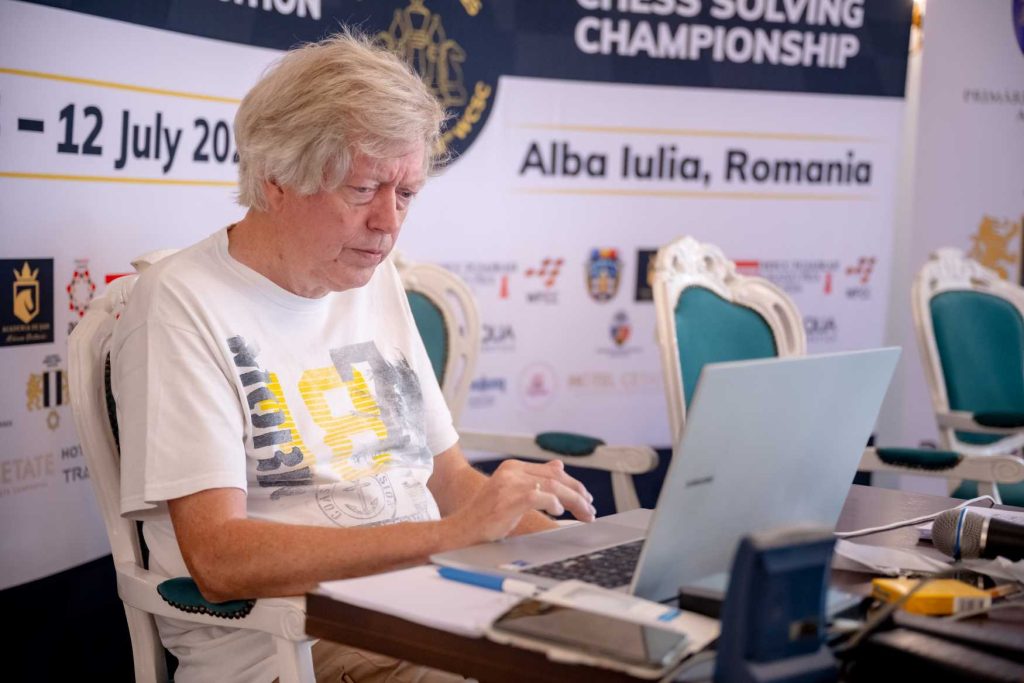
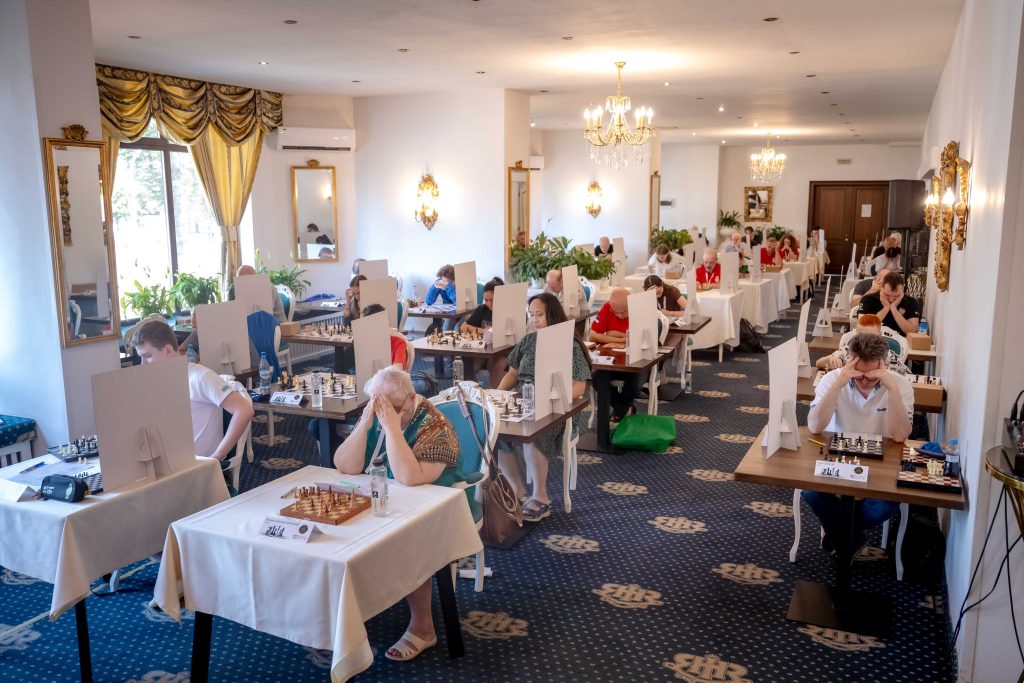
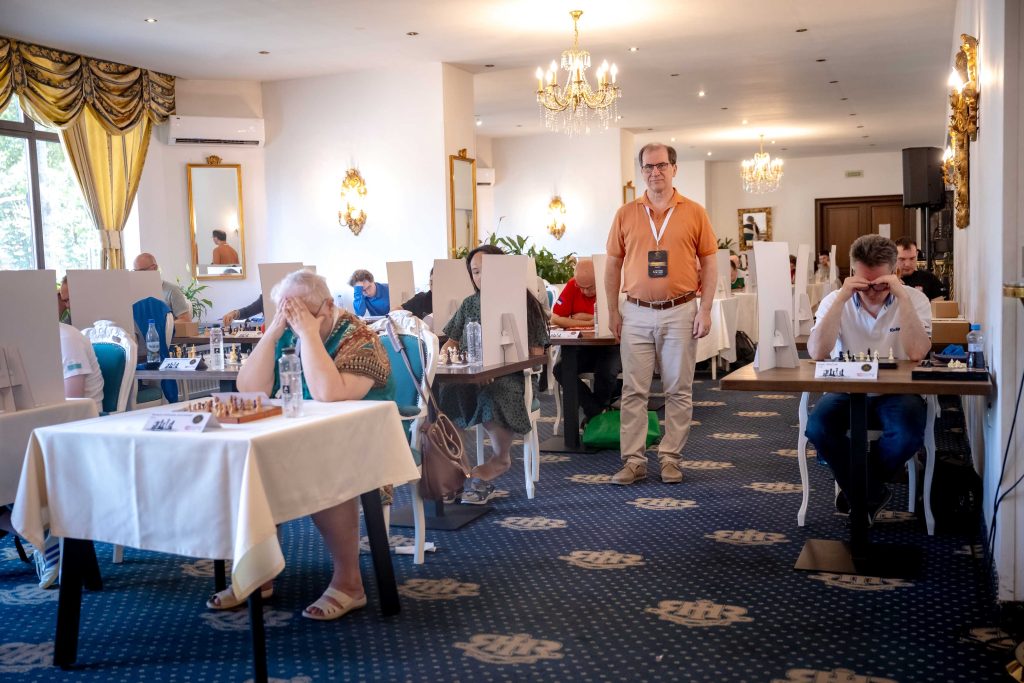
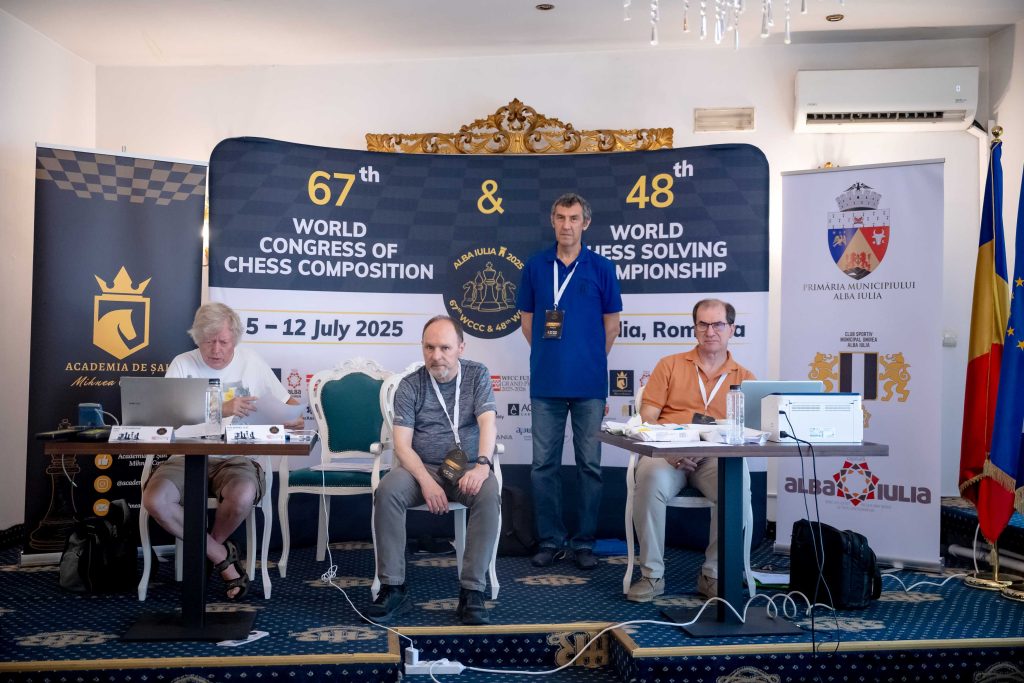
On Tuesday 8th July Congress program first time included an evening devoted to young composers only. The heroes of the night were nine composers aged from 11 to 22, presenting their creations and telling about themselves: Nikolai Sheviakov, Alexandru Mihălcescu, Taras Rudenko, Daniel Dumitrescu, Stefan-Constantin Harnagea, Anton Nasyrov, Ilija Serafimović, Joachim Hambros, and Benjamin Defromont. Vlaicu Crișan and Marjan Kovačević were running the 2 hours long program, with very active contribution from the audience and participants themselves. For all involved, it was one of the highlights of the Congress, concluded with a joint wish to have it soon again.
Open Solving Tournament of WCCC 2025 | 18th and last tournament of World Solving Cup 2024/2025:
Participants: 94 | Winner: Piotr Murdzia (POL), ahead of Aleksey Popov FID) and junior Maksim Kharitonov (FID).
GM, IM and FM norm of Maksim Kharitonov (FID),
GM norm of Vidmantas Satkus (LTU)
IM and FM norm of Anton Nasyrov (FID)
FM norm of Taras Rudenko (UKR)
Average rating of top ten solvers: 2586.13 | WSC category: 2
Top 5 Final Standings: 1. Eddy Van Beers (BEL) 133 points (unchanged), 2. Piotr Murdzia (POL) 96 points (+41), 3. Kacper Piorun (POL) 91 points (+19), 4. Nikos Sidiropoulos (GRE) 66 points (+8), 5. Vidmantas Satkus (LTU) 65 points (23).
More details published in Competitions→Solving→World Solving Cup & Norms @ Solving Portal
07.07.25. Open Solving Tournament
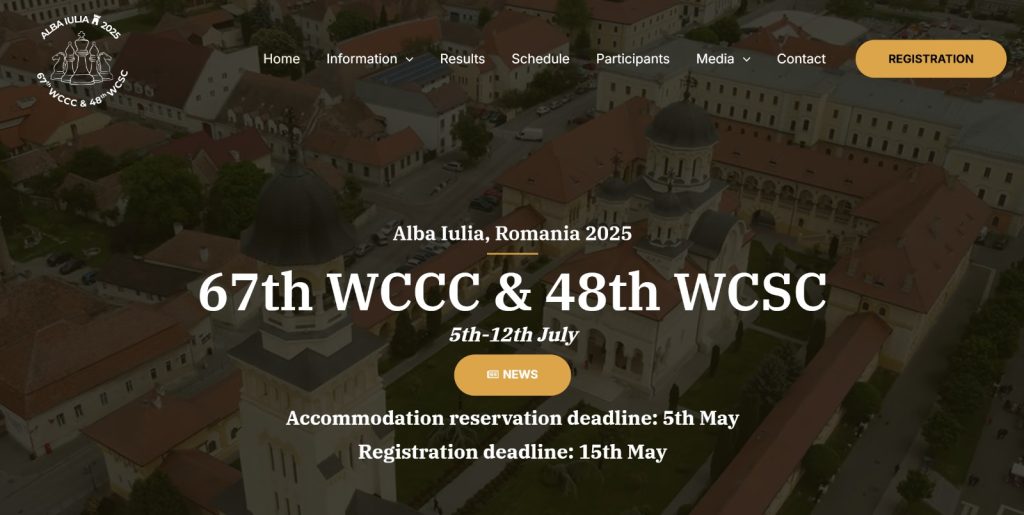
The 67th World Congress of Chess Composition (WCCC) and 48th World Chess Solving Championship (WCSC) will be held from Saturday, July 5th (arrival) to Saturday, July 12th, 2025 (departure) at ’Cetate Hotel’ *** in Alba Iulia (Romania), with the WCSC on Tuesday and Wednesday, July 8th and 9th. The WCCC 2025 director is IM Mihnea Costachi.
Please use the registration button on the official website.
Contact: wcsc2025@yahoo.com | INVITATION in PDF | WCCC 2025 official website
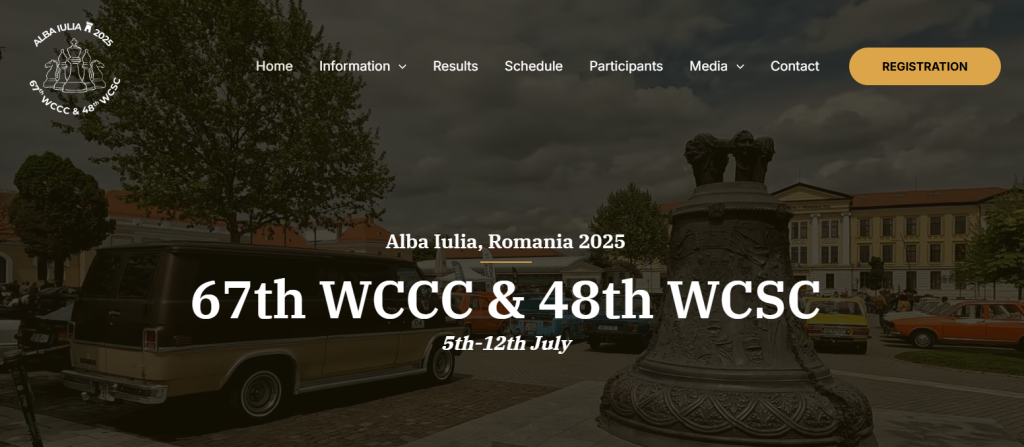
We are happy to announce the launch of the official website and we are waiting all chess solving and composing enthusiasts in Alba Iulia!
The 67th World Congress of Chess Composition (WCCC) and 48th World Chess Solving Championship (WCSC) will be held from Saturday, July 5th (arrival) to Saturday, July 12th, 2025 (departure) at ’Cetate Hotel’ *** in Alba Iulia (Romania), with the WCSC on Tuesday and Wednesday, July 8th and 9th. The WCCC 2025 director is IM Mihnea Costachi.
The registration deadline is May 15th, 2025. Please use the registration button on the official website.
Contact: wcsc2025@yahoo.com | INVITATION in PDF | WCCC 2025 official website
Romanian Chess Federation and ’Mihnea Costachi Chess Academy’ Association have the honor to invite all delegates of the World Federation for Chess Composition (WFCC), national teams and individual solvers, chess composers and all those interested in problem chess, to attend the 67th World Congress
of Chess Composition (WCCC) and 48th World Chess Solving Championship (WCSC). Romanian Chess Federation will also celebrate its centennial in 2025.
The congress will be held from Saturday, July 5th (arrival) to Saturday, July 12th, 2025 (departure) at ’Cetate Hotel’ *** in Alba Iulia (Romania), with the WCSC on Tuesday and Wednesday, July 8th and 9th. The WCCC 2025 director is IM Mihnea Costachi.
Contact: wcsc2025@yahoo.com | INVITATION in PDF